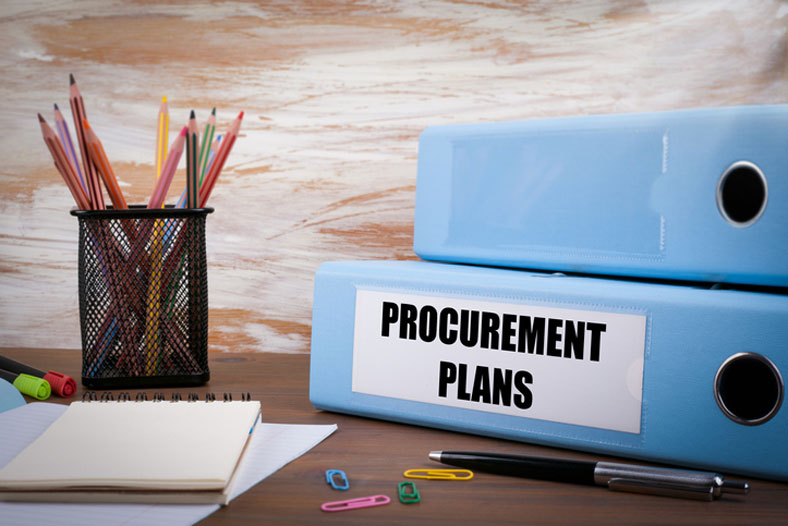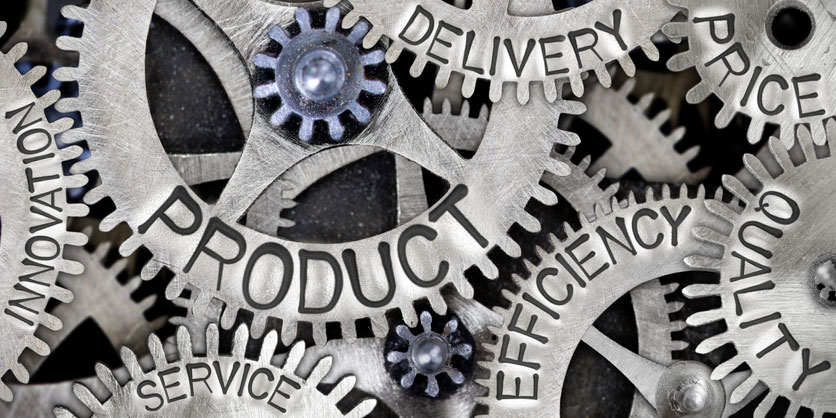Written by Rebecca Turley
What is supply chain procurement? Procurement encompasses all activities related to the sourcing of goods and services needed to run a business and is a vital part of supply chain management. Procurement professionals are involved in the strategic decision-making associated with sourcing goods and services, managing contracts, maximizing profits, and minimizing risk.

While the term procurement is often used synonymously with purchasing, businesses view it as a larger, more strategic set of activities within the supply chain that encompasses purchasing and a whole lot more.
The purchasing professional or team focuses on the transactional aspects of ordering goods and services and making payments. But it’s far more accurate to define procurement within the supply chain system as a process and not just a single act. Supply chain managers who oversee procurement are also often responsible for sourcing suppliers of raw materials and goods, negotiating terms with suppliers, purchasing, receiving and inspecting shipments, analyzing strategies, and overseeing quality. Purchasing, on the other hand, is just one transaction within the larger procurement process.
Supply chain procurement looks quite different from one company to the next. For example, supply chain procurement for a manufacturer includes activities associated with sourcing and negotiating purchasing for raw materials needed to produce a product. While for a retailer, it includes negotiating purchases for finished products they want to sell. Regardless of which segment of the supply chain they lend their talents to, professionals in the procurement process are responsible for minimizing risks, maximizing efficiency, and maintaining a level of quality.
Procurement is largely considered the starting point of any supply chain, whether the company is sourcing rare earth metals to build rockets or paper supplies to keep their office running. Procurement can involve sourcing both goods and services, with most business supply chains comprising both for direct and indirect business needs:
- Direct Procurement – Direct procurement refers to anything that a company needs to produce a product. Of course, for manufacturers, this includes raw materials and components, while for suppliers, wholesalers, and retailers, this includes the finished products that are sold to consumers.
- Indirect Procurement – Indirect procurement refers to the goods and services needed for daily business operations. Marketing services, consulting services, office equipment, and Internet service providers are just some of the many examples of indirect procurement.
The Supply Chain Pros Behind the Procurement Process

Supply chain managers work for farmers, mining companies, manufacturers, suppliers, wholesalers, distributors, retailers, trucking companies, rail companies, ports, and much, much more. Supply chain management encompasses any activity associated with the supply chain, from beginning to end, start to finish.
All procurement professionals are supply chain management professionals, but not all supply chain management professionals specialize in procurement. Supply chain managers working in procurement:
- Establish and maintain relationships with reliable suppliers and vendors
- Secure the highest quality goods and services for the most competitive price
- Conduct regular quality assurance checks
- Work alongside other members of the supply chain management team to verify specifics such as budget, time frame, and quantity
- Select suppliers and vendors that match a company’s ethical, social, and environmental vision (e.g., sourcing from local companies or from companies that are committed to environmentally sensitive business practices)
- Negotiate both price and terms
- Examine invoices for accuracy
- Monitor supplier performance and inventory levels
- Keep accurate records
Because supply chain procurement encompasses a range of activities, the process is overseen by a procurement team that works to locate the supplies they need, negotiate terms with suppliers to receive the competitive price, complete purchase agreements, and ensure timely delivery.
Supply chain managers working in procurement are always monitoring the procurement process to optimize efficiency, quality, and cost-effectiveness. In small operations, the procurement team may be a single person, while multinational corporations often have dedicated procurement departments serving different needs in different parts of the globe.
Procurement professionals are the creative problem solvers of supply chain management. They’re quick to identify snags and equally quick to find solutions to ensure the necessary products and materials continue flowing into the business, all while keeping costs in check. Procurement done right can give companies with razor-thin profit margins the extra foothold they need to begin building toward becoming profit-making machines.
Job titles on the procurement side of supply chain management include:
- Head of procurement
- Chief procurement officer
- Procurement director
- Category acquisitions director
- Procurement lead
- Category acquisition lead
- Resourcing director







